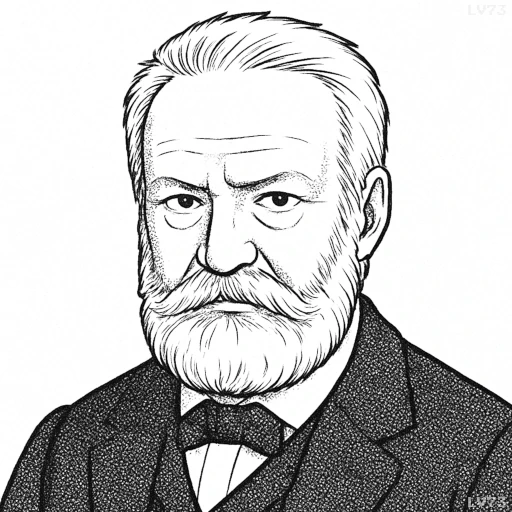“I put a Phrygian cap on the old dictionary.”

- February 26, 1802 – May 22, 1885
- Born in France
- Author, poet, playwright
table of contents
Quote
“I put a Phrygian cap on the old dictionary.”
Explanation
In this quote, Victor Hugo uses the Phrygian cap, a symbol of freedom and revolution (often associated with the French Revolution), to describe his act of reinterpreting or redefining the dictionary. The Phrygian cap was worn by revolutionaries as a symbol of liberty and the end of oppression. By putting a Phrygian cap on the dictionary, Hugo is likely suggesting that he is transforming the language or the established system of meaning, giving it a new, revolutionary context. The dictionary, traditionally a repository of fixed meanings and conventions, is reimagined as a tool for freedom and change—a living, evolving reflection of society.
Hugo’s choice of the Phrygian cap also reflects his broader belief in the power of language and ideas to influence and shape society. Just as the French Revolution sought to overturn old systems and create new structures of freedom, Hugo sees language as a dynamic force that can be used to inspire progress and revolution. This act of putting the cap on the dictionary could represent Hugo’s role as a literary and intellectual revolutionary, redefining how words and ideas are understood.
In modern terms, this quote speaks to the idea that language is not static but rather a tool of transformation. It suggests that language, like the symbols of revolution, can be used to challenge established norms and create new possibilities. Just as revolutionaries redefined the world around them, writers, philosophers, and thinkers have the power to reshape language and, in doing so, shape the way we see and interact with the world.
Would you like to share your impressions or related stories about this quote in the comments section?


